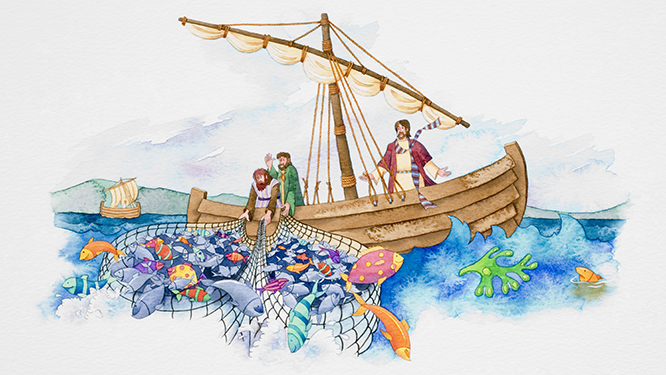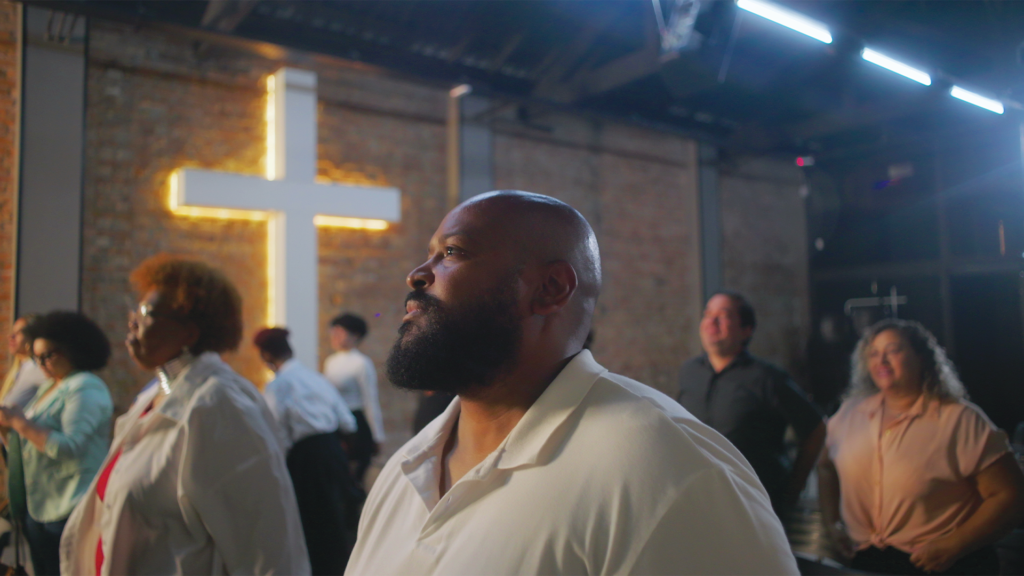Canadian blogger Carey Nieuwhof has reignited the discussion over being disciples vs making disciples—writing, “Jesus never asked you to be a disciple; He called you to make disciples.”1
But really, the two cannot be separated.
A disciple is a follower or learner who grows more like Jesus, the Disciple-maker, every day in every way—and the inter-relationship of making and being is unique.
Unfortunately, the idea of being disciples has become the fall-back position of many not actively engaged in disciple-making. It is a kind of post-conversion gradualism—a journey of personal spiritual growth (even of a lifetime) that might one day result in faith sharing, although most never get that far!
On the other hand, making disciples is the priority of movements—with all believers and leaders defined by their participation.
Jesus championed early involvement
Such early participation by new disciples in disciple-making seems counterintuitive. We think new believers need to attend church and be built up until they can share their faith. But Jesus did it differently.
He immediately involved new disciples in disciple-making—and it is those making disciples who were called disciples. Involvement in disciple-making was a vital component of His process, critical to the development of character and spiritual maturity.
Jesus immediately involved people
After 40 days in the wilderness, Jesus called His first disciples at the Jordan River.
• His first invitation, “Come and see”, was experiential. Simple and easy to replicate, Jesus modelled making and being a disciple. Responding to His call, “Come and see”, Jesus invited two of the Baptist’s disciples to where He was staying, and Andrew and Philip spent a day with Him. They immediately called others—Andrew called his brother Peter, and Philip, his friend Nathaniel.
Even a short time with Jesus prompts participation in inviting others with the same invitation—“Come and see”—to the same experience (John 1:39-46).*
• Jesus’ second invitation, “follow me”, was relational. The next day, those who chose to walk with Him were called “his disciples” (John 1:43; 2:2). It doesn’t take long to become a disciple who makes disciples.
After time at a wedding in Cana and “a few days” at Capernaum (beside the lake) “with his mother and his brothers and his disciples” (John 2:2-12), Jesus went to Jerusalem and Judea for 18 months. There He gained “more disciples than John”, with His disciples baptising these many new disciples (John 3:22; cf. 4:1,2).
Immediate participation by new disciples characterised Jesus’ movement. Like the Samaritan woman, whom He met when returning from Jerusalem to Galilee, all new disciples were immediately engaged in making disciples. When she indicated her trust in Him, Jesus told her, “Go, call your husband and come back” (John 4:16). She had met Jesus and could go into Sychar calling, “Come and see a man who told me everything I ever did. Could this be the Christ?” (John 4:29; see also Mark 5:18-20).
A disciple can tell of having met Jesus, and also extend the first disciple-making invitation to others: ”Come and see.”
• Jesus’ third invitation, “Fish with me”, was a call to participate. Just as with physical exercise, participation in disciple-making cultivates spiritual strength. It is therefore not surprising that Jesus made this His priority. It could be called a spiritual law: participation in making disciples cultivates our being disciples.
Learning to fish for people
Having returned to Galilee to live in Capernaum, Jesus intensified the equipping of His disciples. Finding Peter and Andrew at the lakeside, as well as James and John, Jesus said, “Come, follow me and I will show you how to fish for people” (Matthew 4:19 NLT).
He was not calling them for the first time, as some of our non-inspired Bible headings wrongly suggests.2 They already knew Jesus well. They had met Him at the Jordan and chosen to follow as “his disciples”. They had been with Him when He performed His first miracle at Cana (John 2:2), witnessed His “zeal” in deconstructing Jerusalem’s Temple ceremonies (John 2:17) and were “surprised” by His boldness in inviting a Samaritan woman to be a disciple (John 4:27).
They had perhaps travelled back-and-forth between Jerusalem and their Capernaum homes, dividing their time between making and “baptising” new disciples for Jesus in Judea and caring for their families and fishing activities in Galilee (John 3:22; 4:1,2). But Jesus had more to teach them about fishing for people, and each time they gladly left what they were doing to learn from Him (Luke 5:1-11).3
Transformed by God’s mission
In calling a despised Samaritan woman to be a disciple, in engaging with the centurion in Capernaum and, later, taking His disciples to make disciples in pagan Decapolis and Phoenicia, Jesus shaped the hearts and lives of His disciples.
• His fourth invitation, “Love your enemies”, was sacrificial. When selecting His 12 from “a large crowd of his disciples” (Luke 6:17), Jesus outlined His core values, saying: “Love your enemies! Pray for those who persecute you! In that way you will be acting as true children of your Father in heaven” (Matthew 5:44,45 NLT). This takes sacrifice—the crucifixion of self, seen in love for all others (Matthew 16:24; cf. John 13:34,35).
• Jesus’ fifth invitation, “receive the Spirit”, empowers. Having accomplished all that was necessary for our salvation by His life, death and resurrection, Jesus affirmed, “‘As the Father has sent me, I am sending you.’ And with that he breathed on them and said, ‘Receive the Holy Spirit’” (John 20:21,22).
The same Spirit who anointed Jesus at His baptism, anoints new disciples at their baptisms—empowering and sending them for disciple-making. Jesus said, “You will receive power when the Holy Spirit comes on you, and you will be my witnesses . . . to the ends of the earth” (Acts 1:8; cf. 2:1-4,11,38,39).
As His body, we are called to engage with His nature and mission. His commission resonates with our being, “Therefore go and make disciples of all ethne (tribes, languages or relational streams), baptising them in the name of the Father and of the Son and of the Holy Spirit, and teaching them to obey everything I have commanded you. And surely I am with you always, to the very end of the age” (Matthew 28:19,20).
The future church
Participation in making disciples is the environment where our being as disciples is cultivated. It is a comprehensive, integrated, transformational journey of growth and learning. Our experiences (our hearts), decisions (our heads) and active participation (our hands) fully facilitate our deepest engagement with God’s heart and mission.
Spirit-empowerment and active participation in Christ’s mission appeals to us. It inspires and challenges. Tired of slogans and routine programs, we want to engage with the relational streams of our communities, to make disciples and plant new faith groups that will reach their colleagues, friends and families with the gospel.
Only those churches that equip, empower and release believers to use the simple, reproducible, anyone-can-do-it, no cost disciple-making methods of Jesus will have a future. Nieuwhof predicts, “The future church will be filled with Christians who realise they’re called to make disciples, not just be disciples. Churches that help their congregation do this will prevail.”4
And, in making disciples, we know our lives will be changed.
Dr Peter Roennfeldt is a church planter and author who writes from Melbourne, Australia.






